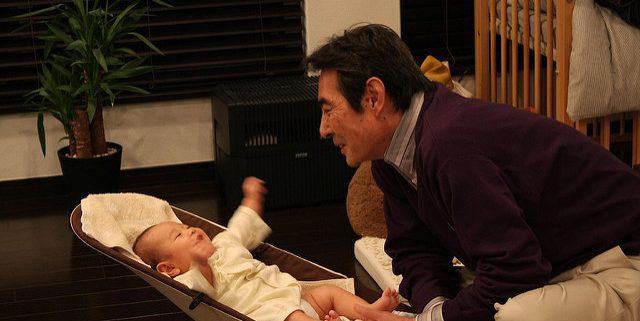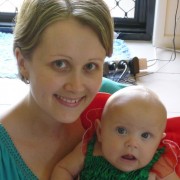Communicating with Babies – What Parents Need to Know.
Babies begin communicating with us from the moment they are born – it’s just that we may not understand what they are saying yet!
It’s interesting isn’t it that if you were going to have an extended holiday in Spain or France, you’d probably make the effort to learn even a few basic words and phrases of Spanish or French. Yet when we are pregnant not many people learn how to communicate with the ‘soon to be here’ baby!
I’ve personally seen the huge benefits parents get when they DO learn how to do this, and the spin-off benefits to their baby such as:
- understanding of their baby’s needs and therefore capacity to meet their needs quickly;
- an increase in Secure Attachment between baby and child – which actually leads to an increase in brain development (more on that in another article); and also
- an increase in a parents’ sense of their ability to positively engage with their baby – which may decrease the risk of post-natal depression.
The Dunstan Baby Language (DBL) is the language you need to know. I am the only DBL Educator in Tasmania – if you’d like to learn DBL, please contact me for individual or group sessions. If you aren’t lucky enough to live here in beautiful Tasmania contact me anyway and I may be able to direct you to someone in your area. We are global!
Once baby has arrived and whether you have done DBL or not, there are some specific ways which young babies begin to communicate with you…
Around 5 weeks of age they begin to make eye contact and smile at you. Given that their vision is still quite blurry at this stage, they are actually responding to your voice, your smell, your gentle touch. They also begin to articulate some sounds, and babies start with the vowel sounds – eeee, ooo, aaah etc. They will love it if you respond back – you can make the same sounds, or just ‘reply’ in a soft voice with words. You’ll notice that very early babies pick up the idea of conversation ie they will ‘say’ some coo-ing to you and then stop – they are waiting for you to reply. When you do, then they will respond – pretty amazing at just a few weeks old!
Around 6-7 months babies will begin to babble ‘words’ and will generally start with either ‘b’ or ‘d’ as is ‘baba’ or ‘dada’ = at this age the ‘words’ have no meaning but are sounds which they have been able to make. B and D are the easiest two to articulate. When they have mastered them, they generally move on to ‘m’ and ‘n’ as in mama or and nana. And then around about 8-9 months of age things get exciting when they do Variegated Babbling. This is when they start to combine sounds and you may end up with something like ‘baba ma dada’.
The next step comes when they repeat ‘word’ consistently for the same person or object, so by 12 months they will usually know that the word ‘da’ belongs to Dad and ‘bo’ might refer to bottle.
What they understand (Receptive Language) is far greater than what they can actually articulate (Expressive Language). They will respond when you say: “Are your ready for your bath?’ and will show excitement – even they can’t yet respond with words.
How can help your baby to learn communication skills?
Most importantly, listen and respond! So whether they are making smiling at you, coo-ing or babbling they are telling you something and will benefit greatly when you gently respond.
- Talk to your baby when you are attending to their needs by telling them what you are doing eg ‘Mummy’s changing your nappy now and am going to clean you up and make you feel so much better.’ A young baby won’t know the word you use but will enjoy your interaction.
- Talk to them when you are doing chores such as shopping and tell them what you are doing – again it is about engaging with your child.
- The more parents communicate with their babies the better. More language going in means more understanding beginning to happen.
Have a great week talking with you baby – they will love it!
Happy Communicating!




